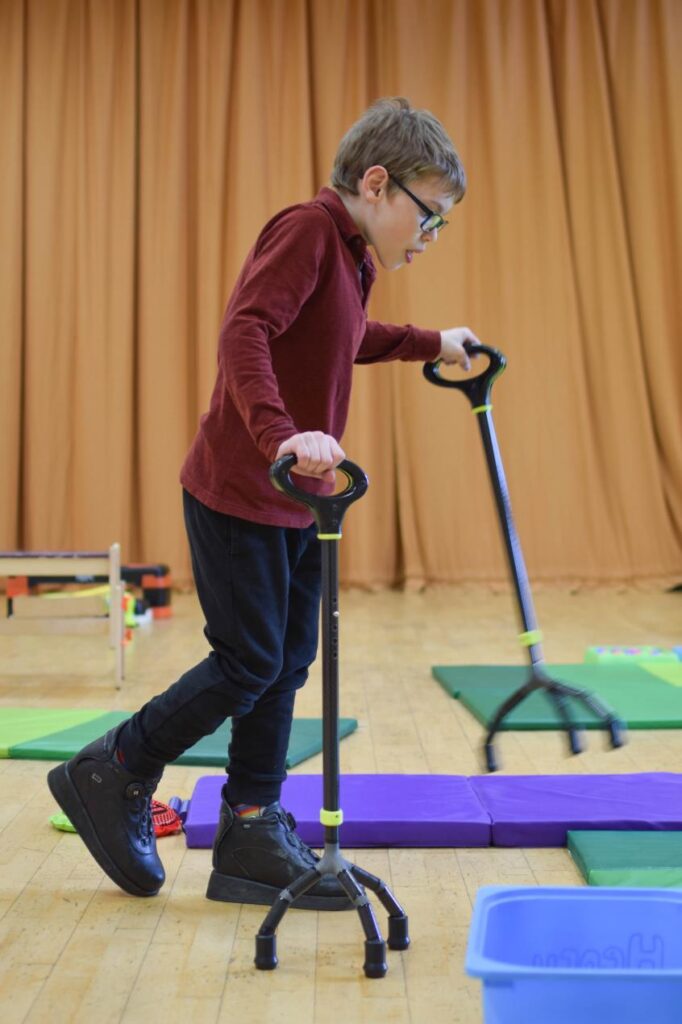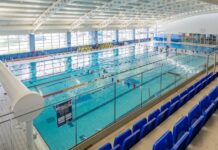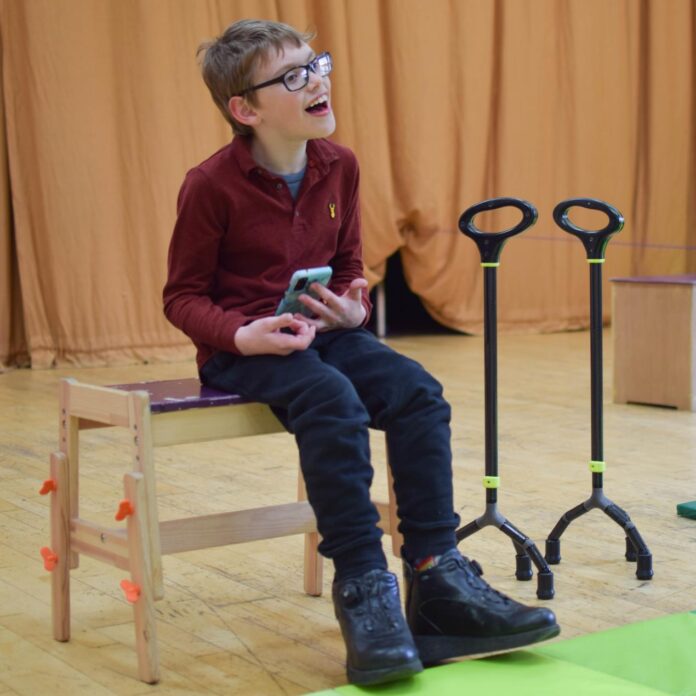
Cerebra, a national charity based in Carmarthen, recently made a 9-year-old boy with cerebral palsy a set of brand-new, high-tech crutches. This innovative design has meant that Henry, from Midsomer Norton in Somerset, can spend less time in his wheelchair and more time building his stamina and taking part in the activities he loves.
Henry, is 9 and a ¼ although, as a massive Harry Potter fan, he will tell you that he is in fact 9 and ¾! He’s very artistic and loves to be out and about, taking part in activities like, wheelchair basketball, power-chair football and frame running!
Henry wanted to spend more time out of his wheelchair, but had outgrown his old crutches. That meant he was hunching over them when walking and this was not good for his posture, as well as being very uncomfortable.
Mum, Lara had tried for some time to find suitable replacements. Henry needed something lightweight, but the crutches they tried were either too wide or too heavy and very expensive. Lara then came across the Cerebra Innovation Centre based in the University of Wales Trinity Saint David in Swansea. They design and build innovative, bespoke products to help children with disabilities to discover and engage with the world around them. Lara explains;

“Before we got in touch with the Cerebra Innovation Centre, I thought we were going backwards rather than forwards. It’s really important that Henry’s crutches can support him for longer distances, to help improve his stamina. We’re so pleased that we got in touch.”
Lara got in contact with Ross Head, Product Design Manager at the Cerebra Innovation Centre and explained the situation and the challenges her family have faced trying to find the best solution for Henry.
Ross and his team started thinking about the lightweight materials they might be able to use and how they would influence the design. In order to make sure the crutches were super-lightweight, though, the team realised they were going to need some ‘space-age’ materials as Ross explains;
“To begin with, we explored carbon fibre. We were able to get hold of this material easily enough, and our colleagues in the Assistive Technologies Innovation Centre (ATiC), also at the University, helped by 3D printing some carbon fibre components.
“The crutches were designed, built and tested through a lengthy and complex process, but during testing, we discovered they were too flexible and not strong enough. So, it was back to the drawing board, but not for long! Working with some of our other colleagues at the Centre for Advanced Batch Manufacture (CBM), we were able to source 3D printed titanium – the material that they make space rockets and Formula 1 cars from! These parts are so strong and tough that it was actually difficult to finish the crutches and make them smooth.”
But, when they completed the build, Ross and the team went to deliver them personally to Henry and Lara and as you can see, Henry was a very satisfied customer! He took to his crutches no problem at all.
Henry’s new crutches will certainly be getting plenty of use over the coming months as Henry is soon to complete his first 100m on his own at his school’s sports day! He’ll do this on his racing frame, but before his does, he’ll be putting the steps in on his crutches to build up his stamina.
Ross adds; “It is so important to us when we produce a product for a child, that it enhances their life in more than just a functional way. The product has to look amazing, it has to draw positive attention and be equal or better than the rest. I feel we have succeeded in this mission and look forward to developing this product further and helping more children.”
Help keep news FREE for our readers
Supporting your local community newspaper/online news outlet is crucial now more than ever. If you believe in independent journalism, then consider making a valuable contribution by making a one-time or monthly donation. We operate in rural areas where providing unbiased news can be challenging. Read More About Supporting The West Wales Chronicle





















